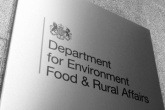Simpler Recycling: Defra announces details for consistently managing England’s household waste
Defra has announced the long-awaited details of Simpler Recycling, mandating collection of glass, metal, plastic, paper and card, as well as food and garden waste by all English Councils before April 2026.
 The announcement represents a milestone after several years of debate about the requirements to be placed on recycling collection, following the ‘Consistency in Household and Business Recycling in England’ consultation.
The announcement represents a milestone after several years of debate about the requirements to be placed on recycling collection, following the ‘Consistency in Household and Business Recycling in England’ consultation.
The outcome, now referred to as Simpler Recycling, sets out a plan to address the Government’s concern ‘about confusion over what can and can’t be recycled in different parts of the country’. In the process, helping citizens when they move house or visit another part of the country.
By April 2026, local authorities will be required to introduce household collection of organic waste, though notably in a boost for operators of in-vessel composting, as part of a commitment ‘to reduce the number of bins required’, garden and food waste may be collected together.
Local authorities and waste collectors will subsequently be required to collect plastic film as part of the plastic waste stream by 31 March 2027. Currently, a three-year trial, known as FlexCollect, is underway to determine how this will be delivered.
Explaining this approach, Defra notes that weekly collection of food waste will end ‘the threat of smelly waste waiting weeks for collection’ and will ‘also stop a trend towards three- or four-weekly bin collections seen in some local authorities across the UK, particularly in Wales’. (Cf. All Welsh councils already separately collect food waste and in 21/22 recycled 65.2 per cent. England’s household recycling rate in 2021 was 44.1 per cent.)
As part of this initiative, the Government states that it will bring forward a ‘proposal to include in guidance an expectation that residual rubbish is collected at least fortnightly’, which if enacted will require English local authorities running less frequent collections to reconfigure services and associated budgets.
In line with the Prime Minister’s recently stated ambition of avoiding multiple recycling bins, ‘the government is proposing new exemptions to make sure that waste collectors will be able to collect dry recyclables together, in the same bin or bag’, signalling a break from legacy European Union requirements that were set out in the Waste Regulations.
In a statement, Defra highlights this Brexit dividend, stating: “The plans for England’s waste system are made possible by our departure from the EU. Repealing outdated EU-derived waste collection rules allows us to be more efficient with our resources, save businesses and consumers money and reduce pressure on the environment.”
Environment Secretary Therese Coffey commented: "Simpler recycling will help us all recycle more easily, doing our bit to help save the planet and make the best use of precious resources that we use every day.”
Endorsing the new approach, Paul Vanston, Chief Executive of the Industry Council for Packaging and the Environment (INCPEN), said: “Today’s announcements move us several steps closer to turbo boosting the country’s packaging recycling rates on metals, paper and card, glass, hard and soft plastics and cartons whilst enabling citizens to be super-confident when applying simpler recycling behaviours at home and at work in future.”
Margaret Bates, Managing Director at On-Pack Recycling Label Ltd (OPRL), commented:
“This announcement is a prompt and clear message that will make planning and operations more efficient for local authorities, packaging producers, brands and waste managers.
“Defra has clearly worked hard to clarify the detail[s] of Simpler Recycling as quickly as possible and this statement should be a welcome assurance for local authorities and wider industry.”
According to a Defra press spokesperson: “Local authorities will be funded to deliver these reforms through reasonable new burdens funding to provide weekly food waste collections from households. They will also receive around £1bn per year from the Extended Producer Responsibility (EPR) packaging scheme starting in 2025/26, in line with the ‘polluter pays’ principle – this means that businesses who use and supply packaging will pay the costs of managing packaging waste.”
The plans will apply to all homes in England, including flats. Similar measures will apply to non-household municipal premises, including businesses, hospitals, schools and universities.
By 31 March 2025, non-household municipal premises in England (such as hospitals, schools, and businesses), except for micro-firms, will be required to recycle all the recyclable waste streams, excluding garden waste and plastic film. By 31 March 2027, micro-firms (non-household municipal premises with fewer than ten full-time equivalent employees) will be required to recycle all recyclable waste streams, excluding garden waste.
Waste crime reforms alongside Simpler Recycling
Simpler Recycling is accompanied by reforms to prevent waste crime, including increased background checks for firms moving or trading waste. Defra says the changes will make it ‘harder for rogue operators to find work in the sector and easier for regulators to act against criminals’.
Defra is also planning to update the existing record-keeping system for waste tracking so those handling waste will record information from the point it is produced to the point it is disposed of on a central digital system. Defra hopes this will give officials the data and evidence needed to penalise those who commit waste crimes.
Steve Molyneux, Deputy Director of Waste Regulation at the Environment Agency, said: “Inappropriately managed waste can have a terrible impact on local communities and nature and undermines investment in the UK by responsible businesses. That’s why we are working to stop waste crime, which is estimated to cost the economy in England £1 billion per year.
“Reforming the licensing system for carriers, brokers and dealers and introducing mandatory UK-wide digital waste tracking will support people to do the right thing by disposing of their waste correctly.
“We are determined to keep one step ahead of the criminals – those acting without regard for the harm they cause – to shut them out of the system and move us towards an economy in which there is no space for waste crime.” 










